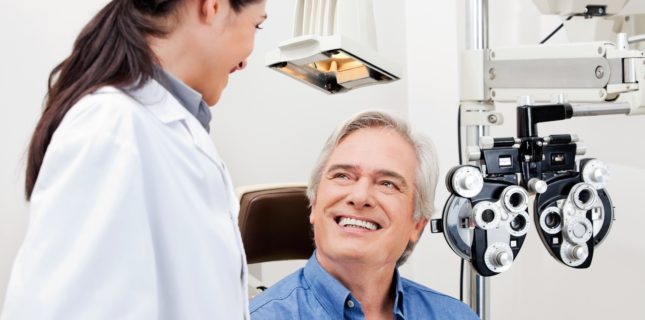
Cataracts: Helping patients get the message
Patients often talk to staff about problems like cataracts. Considering that more than 3 million Americans undergo cataract surgery each year in the U.S. and that most people experience problems for several years before becoming candidates for the procedure, that’s a lot of questions. The good news, of course, is that only 2% of those procedures are not successful, and that less than 1% have serious post-op complications. The doctor gives them the straight scoop about the what and why, and referrals and recommendations. But many staffers report lots of questions come their way, too. To help, especially for newer employees, here’s a quick review of commonly asked questions and potential responses to them.
Tip: “The antioxidant properties of vitamins C and E may protect against the development and progression of cataracts.”
FACTORS
- Is there anything my family can do to minimize their likelihood of needing cataract surgery?
- According to the American Optometric Association, the major factors are age, ethnicity (African Americans are the most likely population group to develop cataracts), diet, protecting eyes from UVA/UVB light, and family history. Some research also suggests, according to the AOA, “that the antioxidant properties of vitamins C and E may protect against the development and progression of cataracts.”
DON’TS
- Are there things I can’t do afterwards?
- Same day directions include no driving, no bending over, no sneezing, no rubbing your eye. For a few weeks, patients should avoid heavy lifting or strenuous exercise, swimming or using a hot tub at least for a week, as well as exposure to grime, dust, and windy conditions.
PROBLEMS
- What sort of problems should I expect afterwards?
- The most likely complaints patients express may include sensitivity to light, some eye inflammation, seeing what appear to be flashes of light (photopsia) and a droopy eyelid (ptosis). Others, seen during examination, may include elevated eye pressure (ocular hypertension) and central retina swelling (macular edema).
This is all information that staff should be familiar with. Do you make sure your key staffers can address patients’ questions about cataracts? If so, tell us which staffers have been trained to discuss this and join in the Facebook conversation here.
Comments are closed.









